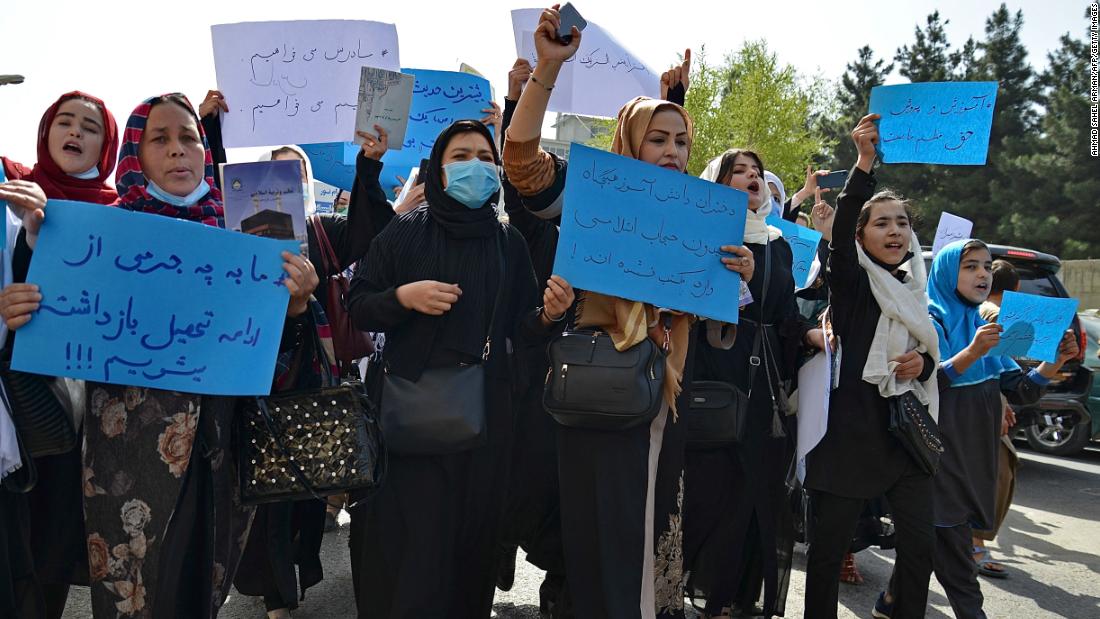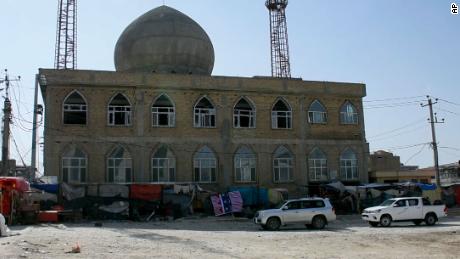
This was in June of last year, shortly before the Taliban takeover of Afghanistan. Heela’s mother, a former government service director (who doesn’t want to be named for safety reasons), and her three other sisters in elementary school were all excited for her to go into grade 10. (Heela’s father no longer lives with the family.)
They all went to a restaurant in Kabul’s bustling Shah-e-Naw neighborhood and celebrated Heela’s success with Kabab and Qabeli palaw, a traditional Afghan dish.
Now, almost eight months into the Taliban take-over, which dramatically changed education for girls, that day seems like a distant dream for Heela’s family. Last week, the young girl attempted to end her life by taking over 20 sleeping pills. After finding her unconscious one morning, Heela’s family rushed her to hospital where she was saved.
Sobbing, her mother told me: “I named her Heela — hope. But today our lives are so dark that even her name can’t give her any hope.”
Just shy of eight months since the Taliban took over and almost all international organizations pulled out of the country, the picture for ordinary Afghans is bleak. But you don’t really hear about our stories in the international media anymore, as the focus shifts to the war in Ukraine. Afghanistan stories are tied to US foreign policy priorities — and when the US abandoned Afghanistan, we disappeared from the news.
Today, Afghanistan is on the brink of civil war. Every day, scores of killings, abductions and targeted murders of former government members, Taliban opponents, activists and journalists are in the news, thanks to the last remnants of a free media.
Meanwhile, the women that I work with in different parts of Afghanistan share stories about pockets of armed resistance against the Taliban in some parts of the country. They say that incidents of Taliban internal fighting are on the rise.
When the Trump administration started direct negotiations with the Taliban in 2018, many of us in Afghanistan welcomed the effort. Indeed, we had already started the process long before the United States. I was part of Afghanistan’s High Peace Council where we went to different provinces, spoke with armed insurgents, their mothers, community members and mobilized communities to influence local and national peace processes.
The Taliban are just one part of Afghanistan. There are many other groups — millions of young women and men who found peace in using their democratic rights over the past 20 years; women who found careers in politics, sport, media and businesses; and countless other social, religious and ethnic communities.
But members of the US negotiation team and international community, including the European Union and other countries, sufficed with one or two meetings between themselves and some of the women leaders.
I understand the Taliban are only one actor in the picture of Afghanistan today. And if the country descends further into chaos and internal unrest, if the armed resistance groups resort to terrorist organizations for ammunitions and support, if the Taliban infighting leads to emerging insurgencies, then it is the Taliban who are responsible for that. But also bearing some responsibility is the US, the EU and other stakeholders who signed a peace deal with the Taliban without an inclusive political settlement.
To global women leaders, feminists’ movements, women and human rights activists internationally, I ask: are the rights of Afghan women not relevant anymore? The US government has certainly turned a blind eye to them. And if the international rhetoric, laws and UN Resolutions do not protect the rights of Afghan women and girls, can women in other parts of the world really trust these systems?
Sometimes I ask myself whether I am not tired of repeating myself for 20 years, whether my voice has any meaning or importance. But the 200 women that I interact with daily, whose stories, pleas for help, thank-you messages and weeping voice notes crash my phone every morning push me to try another day.
These voices are the early warning signs of another crisis in the making, a civil war in Afghanistan that again will harbor and anchor terrorist groups like Al-Qaida and others in the region that can pose serious threats to global security. We must be heard.
How to get help: A worldwide directory of resources and international hotlines is also provided by the International Association for Suicide Prevention. You can also turn to Befrienders Worldwide.
